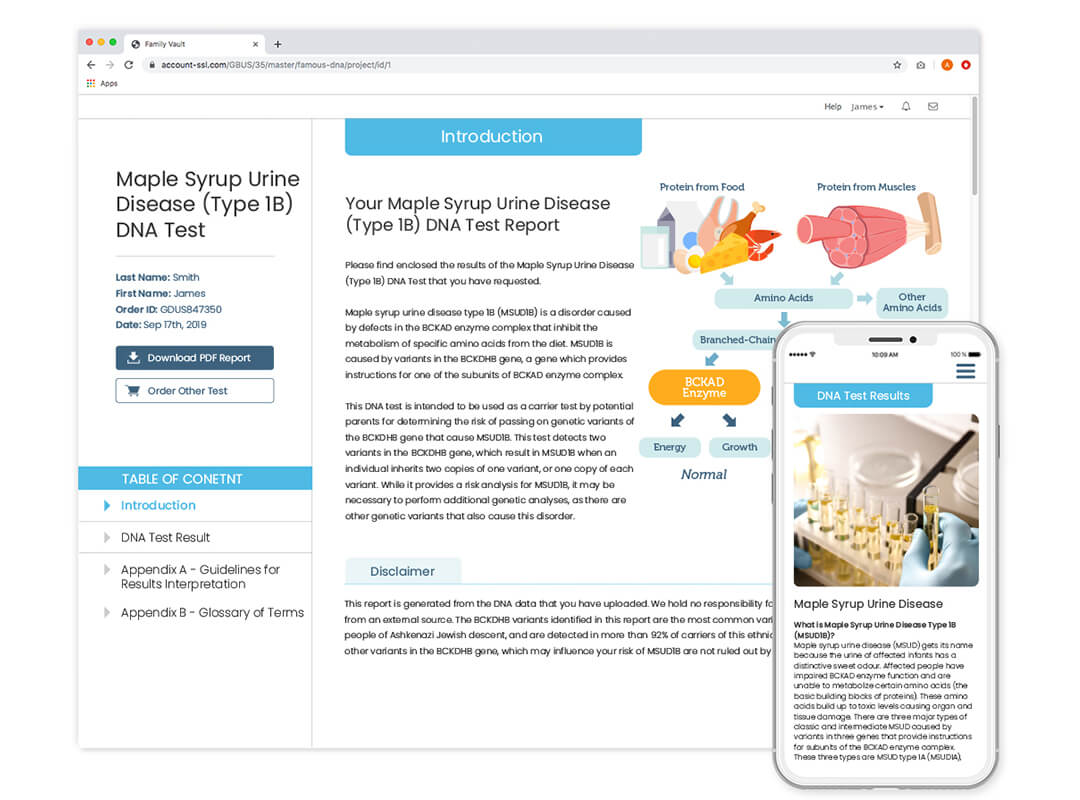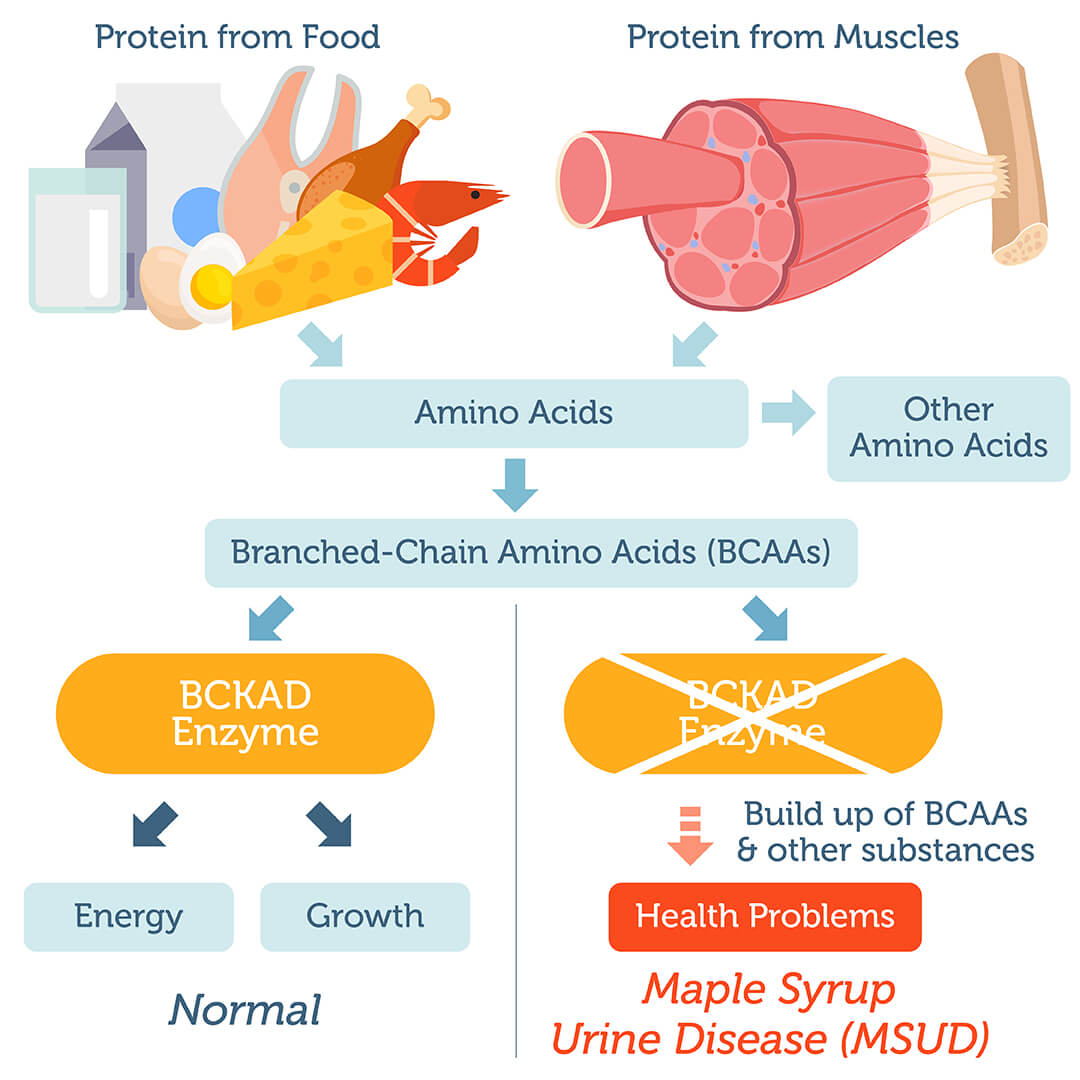Maple Syrup Urine Disease (Type 1B) DNA Test
Are you a genetic carrier for maple syrup urine disease type 1B? Find out with this DNA Test.
- Detects two BCKDHB variants which cause maple syrup urine disease type 1B
- Characterized by elevated levels of branched-chain amino acids (BCAA)
- Carrier screening test intended for couples who are planning to become pregnant
- 100% private and confidential online results
Already have DNA markers? Sign in and upload your data to view results.
Need to take the DNA Test? Order our easy-to-use swab kit.





